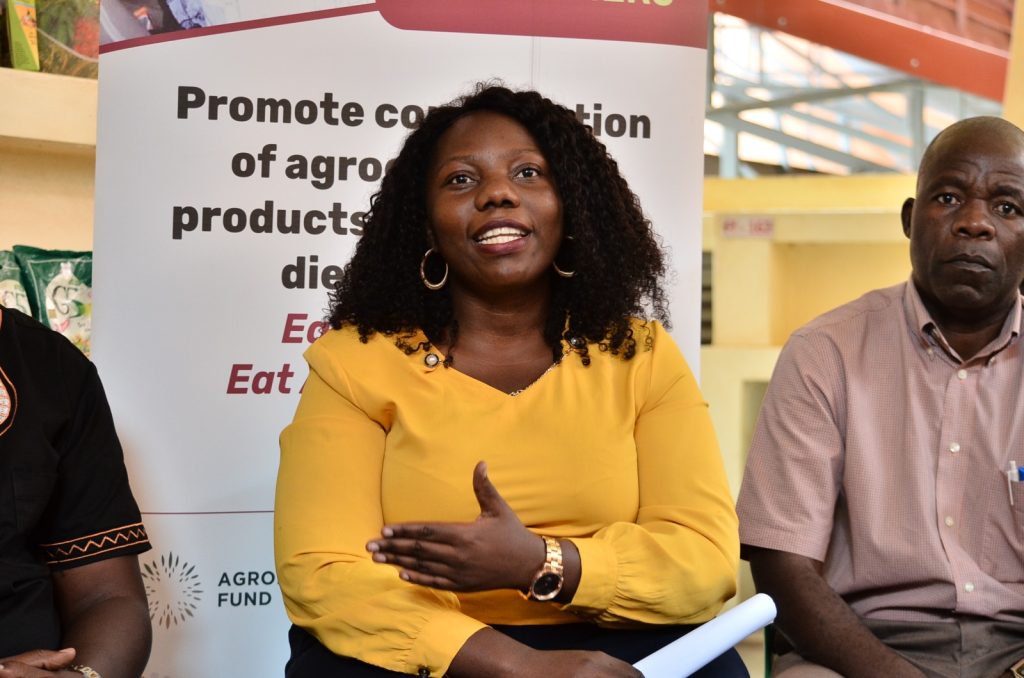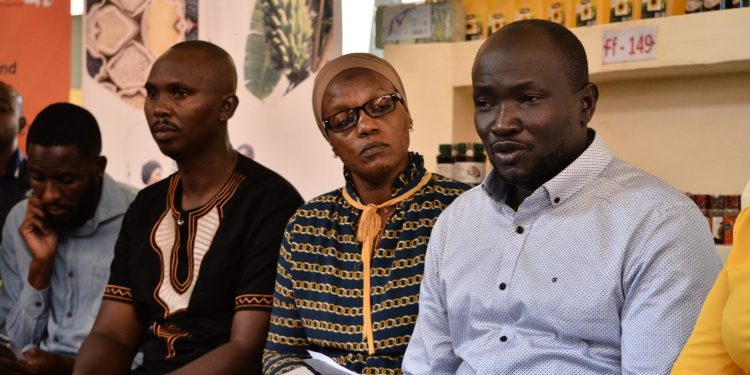Market leaders, farmers, and suppliers join forces to advocate for organic produce visibility
In a compelling call to action, stakeholders in Uganda are urging the government to pave the way for agroecologically produced foods in local markets. Notable entities, including KCCA, municipalities, and city leadership, have been implored to intervene, ensuring that market stalls distinctly showcase healthy organic products, differentiating them from their non-organic counterparts.
The rallying cry comes on the heels of a three-day training session facilitated by the Alliance for Food Sovereignty in Africa (AFSA) and Participatory Ecological Land Use Management (Pelum) Uganda. Held in Entebbe, the training attracted market leaders not only from Uganda but also from neighboring Rwanda and Zimbabwe.
The comprehensive training covered sustainable farming techniques, natural resource management, and biodiversity conservation, emphasizing the establishment of a sustainable supply chain benefiting all, especially marginalized communities.

During a press conference, market leaders pinpointed persistent challenges obstructing the production and accessibility of organic products within territorial markets. A pivotal part of their appeal is directed at the government, starting with the certification of agroecology farmers and ensuring ample market space for their products.
Hadija Nalule from Pelum Uganda, one of the training facilitators, stressed the need for agencies like KCCA to be actively involved, envisioning increased availability and accessibility of organic products in markets.
Market challenges were candidly highlighted by Joseph Mudhasi, the chairman of Nakawa Market, who expressed concerns about the government’s complacency, attributing it to the proliferation of harmful chemicals in crop production nationwide. Mudhasi criticized certain farming technologies for fostering laziness among farmers and causing environmental degradation.
In contrast, Richard Mugisha, a farmer from Jero Farms in Entebbe, dispelled the perception that agroecology is costlier. Having successfully scaled up his farm without the use of synthetic fertilizers, Mugisha underscored the primary hindrance faced by him and fellow farmers – limited access to markets.
Mugisha and others echoed a call for government support in certifying organic food producers, making them distinguishable and promoting fair competition. Stakeholders expressed gratitude to AFSA and Pelum for their proactive initiative and urged continuous collaboration with relevant entities to enhance the relevance of agroecology.
Zuena Nantume, Market Master at Wandegeya, pledged to advocate for allocated space in her market for organic foods. Blessing Tendekani Muwomo from Pelum Zimbabwe underscored the workshop’s role in integrating agroecology into territorial markets, fostering a network connecting farmers, policymakers, and stakeholders for positive change.
Civil society organizations, including AFSA and Pelum, continue to engage the government, contributing to the development of a national organic policy and participating in the ongoing formulation of a national agroecology strategy. As the ‘Bikula Bonnet and Win’ promotion gains traction, the spotlight is on the government to champion healthier food production practices and provide a conducive environment for the flourishing agroecological sector in Uganda.











